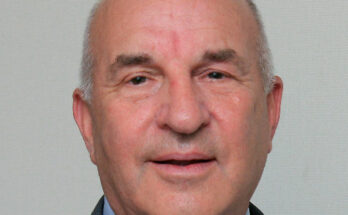She emphasized how much this novel therapy option will be a game changer for advanced stage Parkinson’s patients who are unresponsive to L-Dopa and/or dopaminergic agonist-based medicines, and she was pleased to join the InBrain Pharma Team. According to Véronique Foutel, CEO of InBrain Pharma, the precision medicine concept is now a reality in neurology with this individualized titration of dopamine into the brain.
It gave him great pleasure to pass the reins to Véronique, whose hiring coincides with a pivotal moment for InBrain Pharma. As we proceed to Phase III, her knowledge of the pharmaceutical industry will be quite helpful. Matthieu Fisichella, Co-Founder and CSO of InBrain Pharma, says, She will be focusing on our earlier stage projects to make them progress to clinic going forward.
The two co-founders of the company, Professors David Devos of CHU de Lille, Université de Lille, Neuroscience & Cognition INSERM, and Caroline MOREAU of CHU de Lille, Université de Lille, Lille Neuroscience & Cognition INSERM, conclude, They are very pleased to welcome Véronique to InBrain Pharma, who will strengthen the company’s growth. We would like to thank Matthieu for his endeavor, who was instrumental in helping us establish the proof of concept of neurological disorder correction by brain infusion of a therapeutic agent.
The second most prevalent neurodegenerative illness worldwide is Parkinson’s disease.
With a doubling in occurrence over the past 25 years, Parkinson’s disease is the neurological ailment with the greatest rate of growth in the globe. Half of the 2.6 million infected individuals1 in the top 5 EU markets2, the US, and Japan are in an advanced stage of the disease. The illness is brought on by a progressive loss of dopaminergic neurons, which results in a dopamine deficiency and a severe, excruciating movement impairment along with cognitive-behavioral and mental health issues. With their limited efficacy, invasiveness, or both, today’s advanced stage therapeutic alternatives rely on a small number of device-aided therapies that are beneficial for less than 50% of patients. Dopamine infusions into the brain are one innovative therapeutic approach that helps to fill this gap in care.



